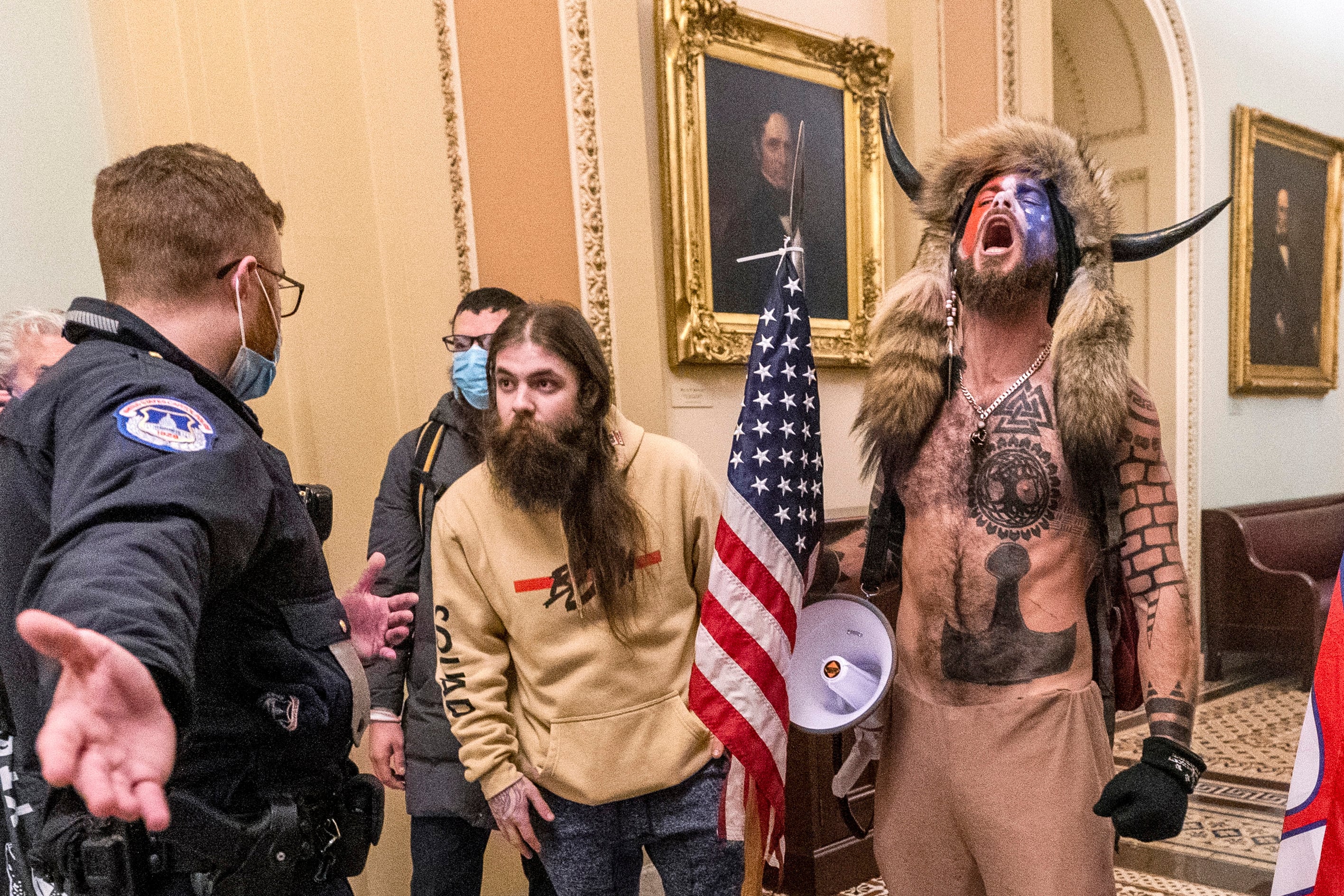In the days following the Jan. 6, 2021, attack on the Capitol, as more reports of veterans and current service members’ participation trickled out, eyes were on the Pentagon, looking for an explanation as to whether the Defense Department knew about the anti-government leanings of current and former members.
They were and had been aware, officials said, though they had negligible information on how common it is, as there was no central tracking process for reports, investigations or criminal cases that had been handled either within the services or passed to the FBI.
Since January 2020, according to a DoD inspector general report released May 12, there have been nine publicly reported current or former service members charged with crimes related to violent and/or supremacist-leaning extremist groups. Two of them were recent Marine Corps veterans, charged in a 2020 plot to kidnap Democratic Michigan Governor Gretchen Whitmer.
“In addition, the DoD has received six congressional inquiries since February 2019 regarding the DoD’s policy on prohibited activities, especially extremist and supremacist activities in the Armed Forces,” the IG found.
A January 2020 report to Congress noted 45 allegations in the previous year, according to the IG report, including 24 in the Army, 11 in the Air Force and 10 in the Navy and Marine Corps.
RELATED

Along with a department-wide stand down that mandated a day-long awareness briefing and discussion for every service member and civilian, DoD stood up a working group in February 2021 tasked with reviewing the department’s anti-extremism efforts from the top-down.
The working group found about 100 investigations carried out across the services in 2021 alone, it announced late last year.
The group has since released a new definition of extremism, in addition to exploring better screening for recruits and education about for those transitioning out of service. The group also started a study on the prevalence of extremist views and a process for tracking cases.
“We also found that the DoD collects data through a variety of processes to track extremist-related activities within the Armed Forces; however, these processes are not interconnected,” according to the IG report. “As a result, the DoD is not able to accurately collect and analyze Service-level data and develop a DoD‑wide understanding of extremist-related activity within the Armed Forces. In addition, senior officials cannot determine the full extent of extremist activity to adequately address the issue within the Armed Forces.”
The IG recommended the services create new policies for tracking extremism reports, which the services have agreed to do.
The next step in the department’s efforts includes the prevalence study, due in June. Also due in June, the Pentagon must provide a report to Congress on how it could create a new specification under the Uniform Code of Military Justice to prosecute extremism as a crime in and of itself.
Meghann Myers is the Pentagon bureau chief at Military Times. She covers operations, policy, personnel, leadership and other issues affecting service members.





